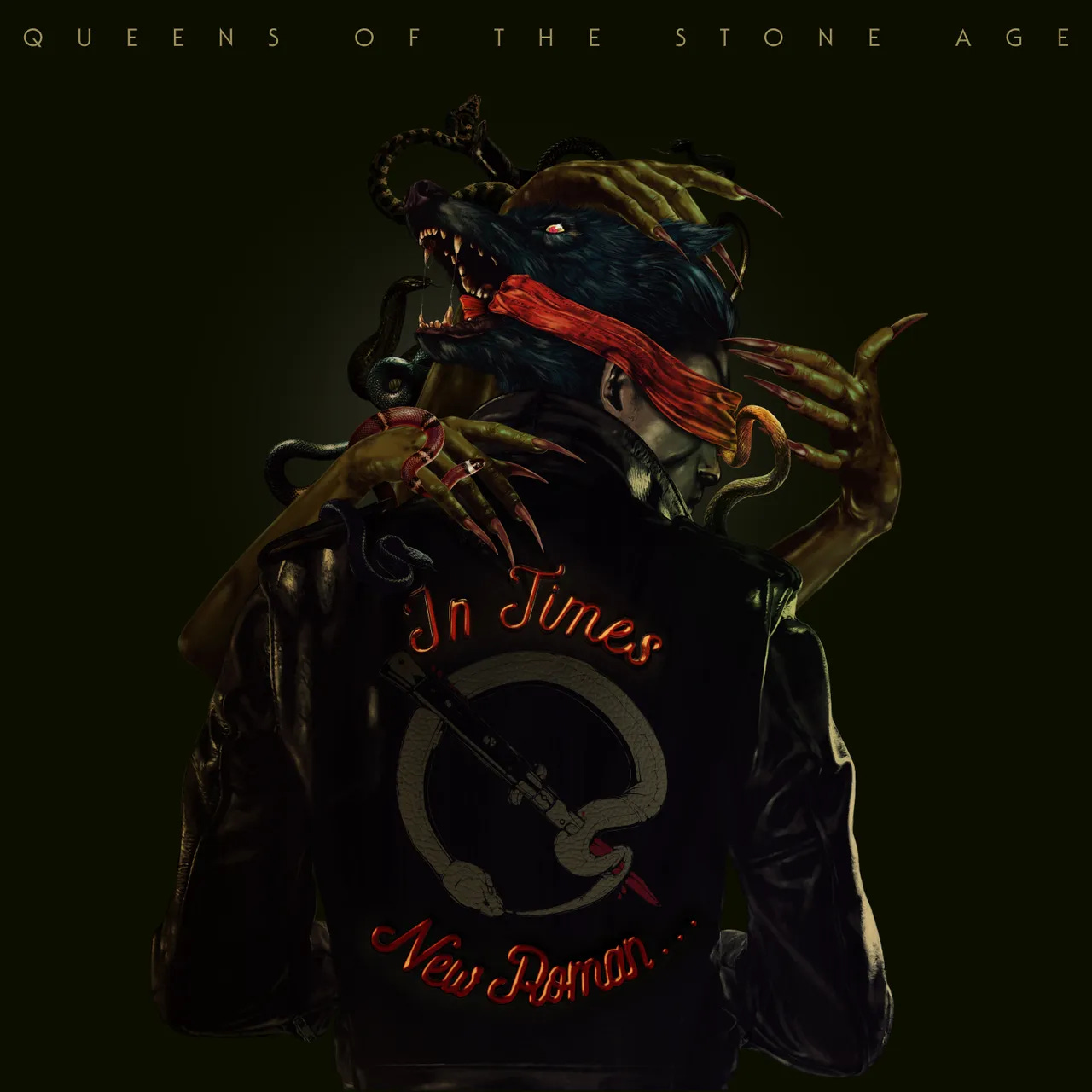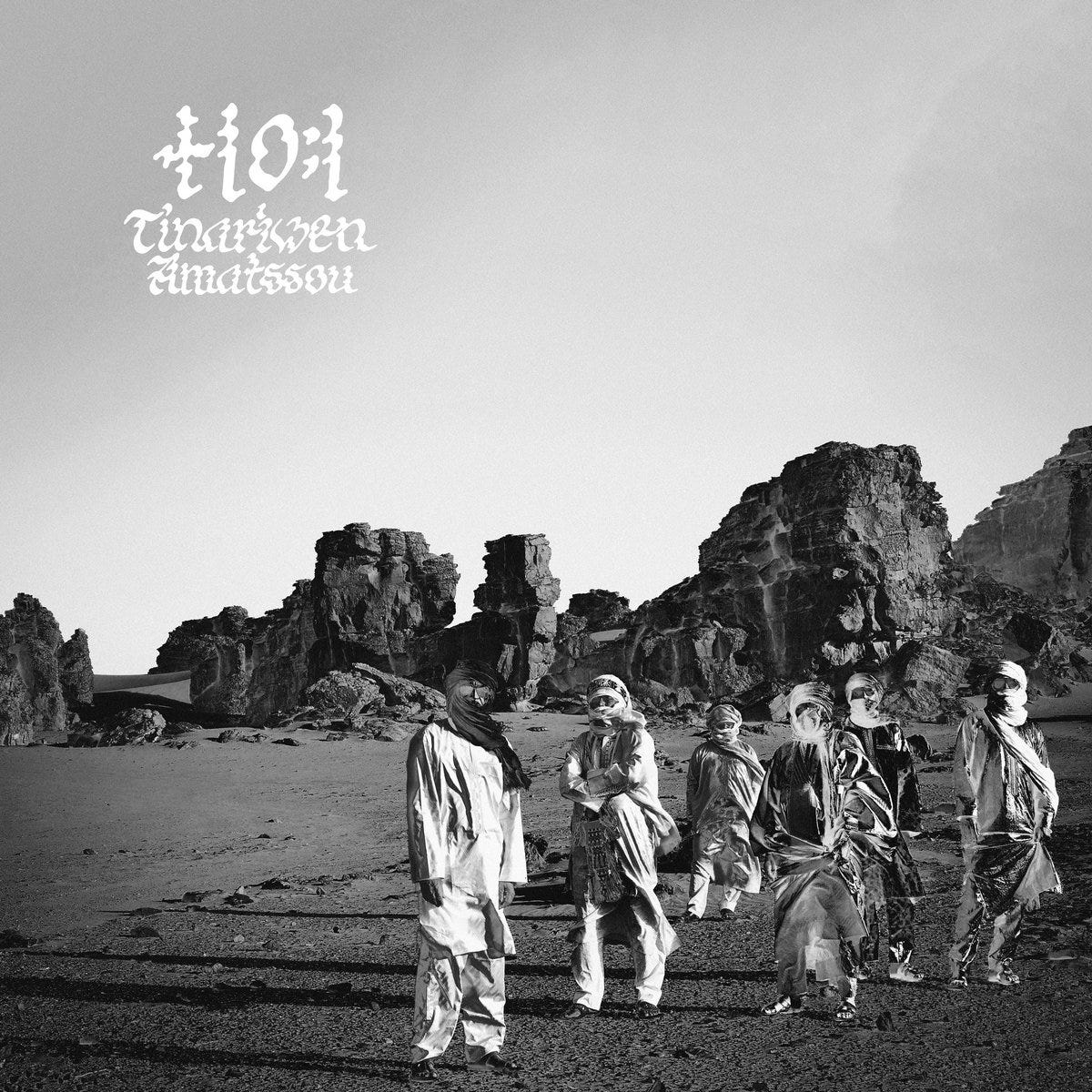Adventures in Listening, June 23, 2023: Emotional Rescue
Foo Fighters keep rocking through their grief. Miranda Lambert dips into southern soul. And Cole Pulice creates a cinematic soundscape.
Foo Fighters - But Here We Are
The Foo Fighters are men of sorrow, well-acquainted with grief. Their first album was designed as a conduit for Dave Grohl’s songwriting in the wake of Kurt Cobain’s death, a way for Grohl to keep rocking even through the jarring implosion of Nirvana. Now, almost 30 years later, they’ve put out another album forged in the fires of sorrow: But Here We Are deals not just with the death of Grohl’s mother but of revered Foo Fighters drummer Taylor Hawkins. Just as Grohl played all the instruments on 1995’s Foo Fighters— less an aesthetic choice than an acknowledgement that he’d suddenly found himself band-less— he holds down the drummer’s chair here, another personnel decision dictated by necessity. Given that this band has always had grief as part of its origin story, it should come as no surprise that they sound unusually focused and disciplined here; But Here We Are stands as one of their most muscular, galvanized, and tuneful albums, a reminder of the type of visceral thrills that are possible from a good old-fashioned arena rock group. (In its death-haunted rock-and-roll catharsis, it reminds me a little of Paul McCartney’s Run Devil Run, where the pallor of loss casts a shadow over even the most raucous party songs.) What’s sort of odd is how their habit of mourning seems to have yielded fairly minimal insight or wisdom. I have a songwriter friend who always says that if you want to write a bad love song, write it about love in the abstract; if you want your love song to be any good, you have to write it about a specific Beloved. I wonder if songs about grief work the same way. There’s little detail here about the people Grohl’s had snatched away from him; he sings about sharing cigarettes with Hawkins, and that’s as concrete as the relationship ever gets. But Here We Are is practically a case study in the prioritization of universality over particularity, its songs so intent on speaking for anyone who’s ever lost somebody that emotional specificity is stripped away. And so we get broad strokes about death’s suddenness: “It came in a flash! It came out of nowhere! It happened so fast!” Opener “Rescued” is a rallying call for stadium-swelling catharsis: “We’re all just waiting to be rescued tonight.” Here Grohl yearns for the kind of transcendence that U2 envisioned so effectively in “Where the Streets Have No Name”— it sounds good while it’s playing and will surely get the job done when Grohl takes this music on the road, but it also suggests something of the spiritual paucity at the center of this anguished and energetic record.
Queens of the Stone Age - In Times New Roman…
Speaking of rock and roll bands that have weathered a hard couple of years, Queens of the Stone Age mastermind Josh Homme has endured an acrimonious, very public divorce proceeding; and a harrowing, very private battle with cancer. How does this meanest, sleaziest, most menacing of bands react to such acute emotional trauma? If In Times New Roman… is any indication, the answer is to double down on the meanness, sleaze, and menace. This is as nasty an album as they’ve made since 2007’s Era Vulgaris— still my favorite QOTSA record, incidentally— a thundering assault of ugly riffs and mechanical grind. The group has mostly chiseled away the synth flourishes that adorned … Like Clockwork and the disco flirtations that characterized Villains, though on standouts like “Time & Place” there are still lithe bass lines that attest a strong affinity for groove. It’s easy to shorthand this as a “back to basics” album, especially since it’s the first QOTSA album to confine itself to the band’s inner circle; there are no marquee collaborators like Elton John or Dave Grohl this time around. But maybe that’s not quite right: The way Homme channels his rage— and that’s very much the form his vulnerability takes here— does indeed galvanize this band, focusing their swagger and panache, yet the bruised heart at their center provides a melancholy undercurrent that’s unique in the QOTSA catalog. You can tell they’re lashing out because they’re hurting.
Tinariwen - Amatssou
I rarely write about African music— not because I don’t like it, but simply because I lack the technical vocabulary to do it justice. I’ll try to make an honorable exception for Tinariwen, both because they’re one of the best bands in the world and because they have one of the best backstories. A loose and long-running collective of Tuareg musicians from the desert region of Mali, these guys are honest-to-goodness freedom fighters whose advocacy for their people has earned them bounties on their heads. As such, they live a nomadic life, wandering from camp to camp and studio to studio, making music as they are able. That music embodies their nomadic spirit through locomotive boogies and endless desert vistas— folksy, communal, endlessly absorbing, culturally specific, rock-and-roll conversant. To my ears, Amatssou is as fine an album as they have ever made, once again finding them operating in their wheelhouse but finding space for some complimentary session work from Western fans and admirers: A few tracks have piano and pedal steel from Daniel Lanois, a few have guitars from Fats Kaplan, one has banjo from Wes Corbett. These players add texture to the band’s dusty grooves, their presence never showy or distracting. The lyrics, meanwhile— generally presented as call-and-response chants— voice opposition to tyranny, support for freedom and justice. I don’t actually speak their language, mind you— but I certainly get their gist.
Miranda Lambert and Leon Bridges - “If You Were Mine”
Long-time readers will know that I am duty-bound to report on all Miranda-related activity; call it a matter of personal conviction. She made my favorite country album of all time, and I’d happily follow her into full-fledged southern soul and R&B, which seems to be where her muse is leading. Her latest single is a little too featherweight to make a strong impression, and it lacks the sharp writing and emotional specificity of her best work. But it’s nice to hear Bridges, who I’ve always loved, have a chance to share space with a singer of Miranda’s caliber.
Cole Pulice - “If I Don’t See You in the Future, I’ll See You in the Pasture”
This is the second time this year I’ve found occasion to write about the ambient sax music of Cole Pulice; if you remain uninitiated, this 22-minute slow-burn is as good a place as any to start. A time-stopping track, recorded as part of the Longform Editions project, “If I Don’t See You in the Future, I’ll See You in the Pasture” is a meditative odyssey that more than lives up to its endearingly dorky title. It begins with what sounds like a Dolby Surround teaser— signalling Pulice’s cinematic intentions, perhaps— before a lengthy stretch of icy soundscapes taken at glacial speed, all conjured by Pulice’s sax being fed through a synthesizer. (Pitchfork’s Ryan Dombal rightly cues the back side of David Bowie’s Low as a helpful reference point.) Then, out of nowhere, the sax sounds like a sax again— romantic, lusty, humanizing. The sound of endless winter starting to thaw. Definitely not the worst way to spend 22 minutes.








Man, I've really been jamming out to Emery's cover of "Everlong." https://www.youtube.com/watch?v=-lIMi0-zWNE&ab_channel=Emery-Topic.
I've only ever listened to their popular radio stuff, but Foo Fighters have managed to make good music that is also commercial and that I'll always remember well as I age (I even include a lyric from "My Hero" in my story collection).
Can I be a pain in the tail and request something? I'm lazy and won't make time to pull up albums of bands I don't already know. What about if you included a YouTube video or embedded your favorite song from whichever album? That would tease me into having a taste (like a sampler platter that turns you into a jalapeño pepper guy).
Good stuff as always, JH.